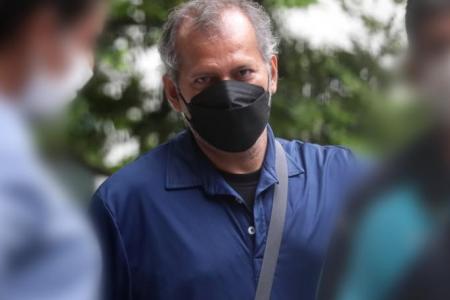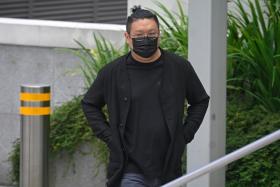Singaporean admits receiving money from scam that tricked companies via spoofed e-mails
Though he had no experience or qualifications to conduct property investments or management, a Singaporean man claimed that his company had received money for a multimillion-dollar property investment.
Mohd Jamail Khan Banakhani Shafi Khan said the money - totalling more than $460,000 - was from a foreigner named Chinazaepere Raphael Okoli for his company to buy a freehold property in Singapore and that he was the appointed property manager.
In reality, a Vietnamese company - Trading Scientific Technological Materials - was tricked into giving the money to Jamail as a result of spoofed e-mails.
On Monday (March 21), Deputy Public Prosecutor Lee Wei Liang sought a sentence of 30 months' jail for Jamail.
He had earlier pleaded guilty and was convicted over eight charges, including five under the Corruption, Drug Trafficking and Other Serious Crimes (Confiscation of Benefits) Act.
Jamail - a director and shareholder of Singapore-registered companies Jars Technology and Jars Investments and Holdings - was previously investigated in 2015 by the Commercial Affairs Department (CAD) for money laundering over money received from a person named "John Mark", DPP Lee said, according to court documents.
On June 20, 2016, the director of Trading Scientific Technological Materials made a police report in Singapore, saying that his firm had been deceived into transferring money to a Jars Technology bank account as payment for laboratory equipment.
Jars Technology had received $140,990.65 on May 23, 2016, and $321,359.83 on June 10, 2016, the equivalent in US dollars of the sum paid by Trading Scientific Technological Materials.
Jamail had consented to receive the money despite knowing that John Mark was also involved in these transactions, and withdrew sums of money from the account from June 1 to 17, 2016.
To support his claims that the money was for a genuine investment worth US$3.5 million, Jamail forged an investment agreement to make it seem that Mr Chinazaepere had signed the contract.
Despite being aware that CAD was looking into this case, Jamail received two other sums of money - US$29,978 and US$ 19,978 - in his personal account, this time from a company named Nama Holdings.
On May 26, 2017, the deputy manager of Bank Mandiri's Singapore branch lodged a police report that it had approved those transfers after receiving spoofed e-mails from Nama Holdings' parent company, Madhucon Granites.
Jamail again claimed that the money was for an investment. He provided the CAD with forged documents to justify the transfers but could not give details of the investment, DPP Lee told the court.
Jamail withdrew and remitted part of the funds from Nama to a person named Chibueze Clement Egbukichi in United Arab Emirates.
On May 11 and 17, 2017, Jamail also withdrew cash from the account.
Jamail's lawyer, Ms Sofia Bakhash, on Monday asked for a sentence of not more than 20 months' jail for her client.
She said there was not much sophistication in his dealings with the money, adding that Jamail did not actively seek the money out had been waiting for instructions.
She added that her client used some of the money to repay his debt and did not use it frivolously.
For each charge under the Corruption, Drug Trafficking and Other Serious Crimes (Confiscation of Benefits) Act, Jamail can be jailed for up to 10 years and fined up to $500,000.
For intentionally obstructing the course of justice, he can be jailed for up to seven years, fined, or both.
For forgery, he can be jailed for up to 10 years and fined.
Jamail will return to court on March 30 for sentencing.
Get The New Paper on your phone with the free TNP app. Download from the Apple App Store or Google Play Store now


